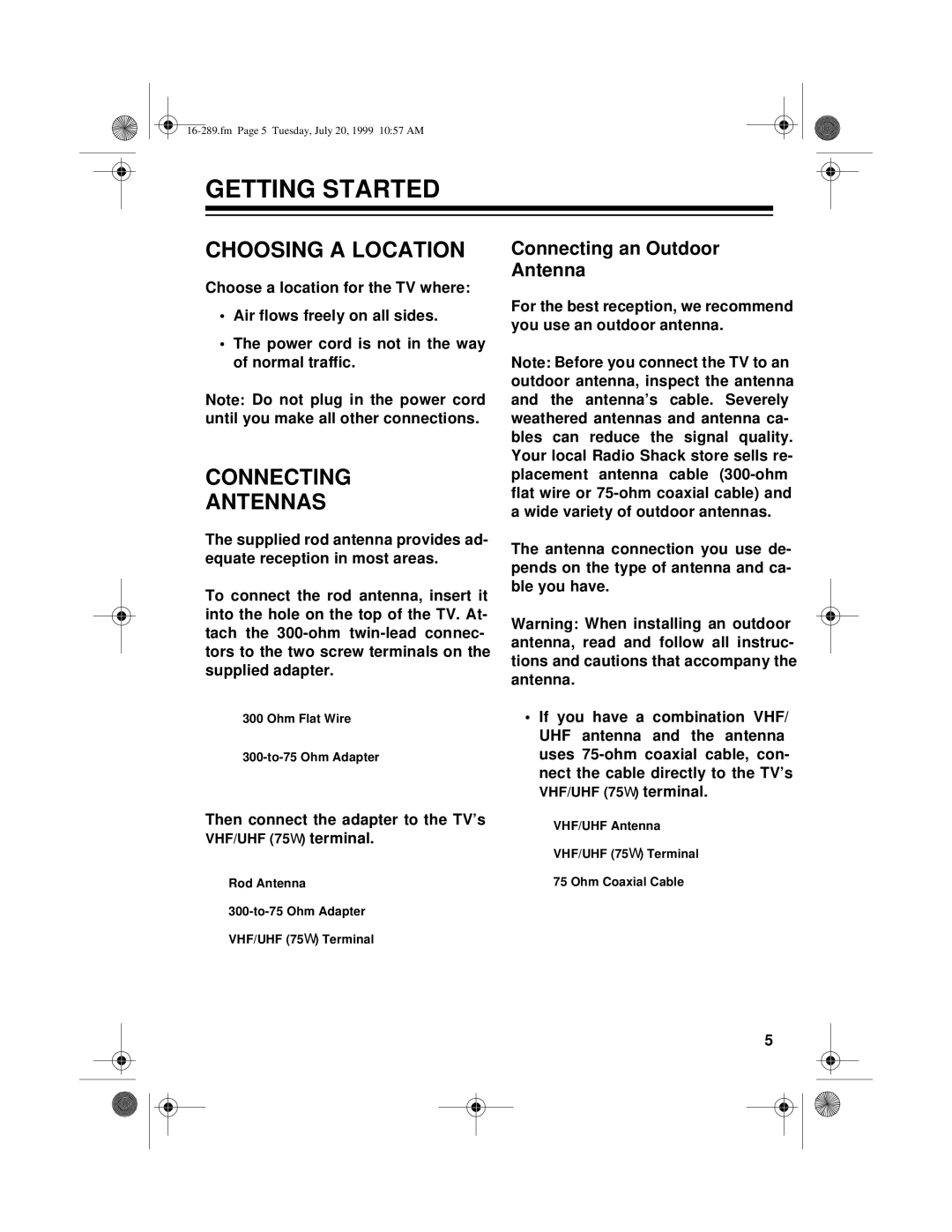
GETTING STARTED
CHOOSING A LOCATION
Choose a location for the TV where:
•Air flows freely on all sides.
•The power cord is not in the way of normal traffic.
Note: Do not plug in the power cord until you make all other connections.
CONNECTING
ANTENNAS
The supplied rod antenna provides ad- equate reception in most areas.
To connect the rod antenna, insert it into the hole on the top of the TV. At- tach the
300 Ohm Flat Wire
Then connect the adapter to the TV’s VHF/UHF (75Ω) terminal.
Rod Antenna
VHF/UHF (75Ω) Terminal
Connecting an Outdoor Antenna
For the best reception, we recommend you use an outdoor antenna.
Note: Before you connect the TV to an outdoor antenna, inspect the antenna and the antenna’s cable. Severely weathered antennas and antenna ca- bles can reduce the signal quality. Your local Radio Shack store sells re- placement antenna cable
The antenna connection you use de- pends on the type of antenna and ca- ble you have.
Warning: When installing an outdoor antenna, read and follow all instruc- tions and cautions that accompany the antenna.
•If you have a combination VHF/ UHF antenna and the antenna uses
nect the cable directly to the TV’s
VHF/UHF (75Ω) terminal.
VHF/UHF Antenna
VHF/UHF (75Ω) Terminal
75 Ohm Coaxial Cable
5
